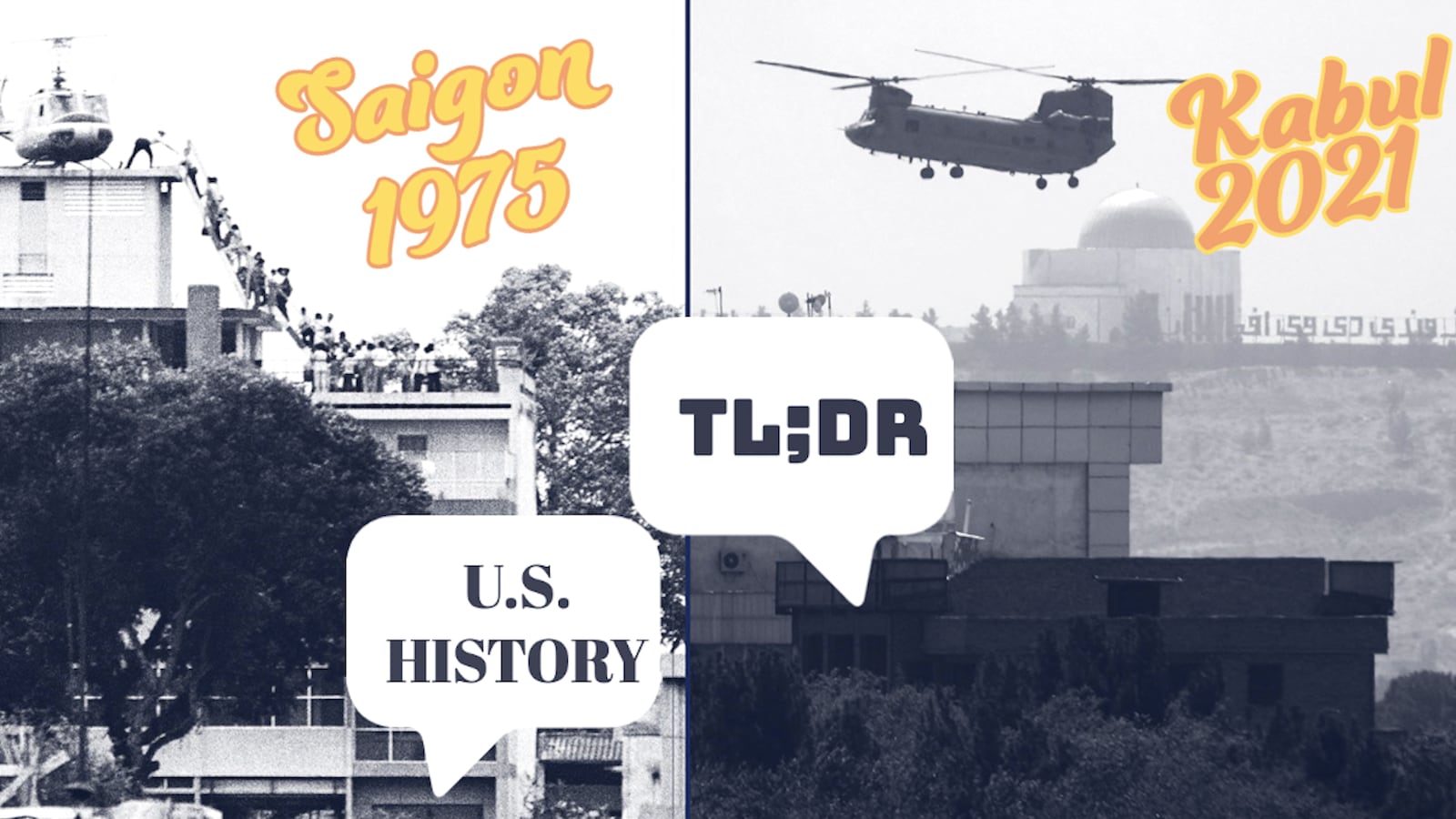I was really overwhelmed this past week watching the fall of Afghanistan. As a Vietnamese American (and more so as a historian), I felt let down. No one gives a damn about history. If we did, we wouldn’t be watching the eeriest of parallels unfold at the end of another miscalculated American war. So, as one does when depressed and alone in front of a laptop, I threw my voice to the void and posted something snarky (but not insincere) on social media (seen above).
In the Facebook comments my old Wyoming friend Harry, a retired Combat Medic, wrote this:
<p><i>I was in contact with several veteran friends this weekend who are having a hard time with the ugly reality of bad American policy. Questioning their service and the ultimate sacrifice of friends and brothers. You’d think all the high-powered, very-educated suits in D.C. would have seen the similarities and have read the history of “The Graveyard of Empires.” Again it’s the common citizen, the common soldier, who has paid the price of bureaucratic hubris and tunnel vision. The suits will move on to a new high-dollar gig, write some papers and memoirs, and count the cash that accumulated in their investment accounts from the military-industrial complex during the last 20 years. Joe and Jane Dogface will wonder about their worth to our culture, continue to nurse the TBIs and hobble along on state-of-the-art prostheses, and be too patriotic for our own good, answering the next call because our country needs us. Write a song for us, Julian. We need a poet’s voice to explain all this madness.</i></p>
So, this song is for all those who served despite their higher-ups too often making cheap their sacrifice. It’s for my Dad, one of the most outgoing and loquacious people I know but who never really talks at length about his time in the Navy. He called me up this week and said, “It feels just the way it did after Vietnam. What a mess. Politicians fucking everything up.”
It’s for my dear friend and collaborator Juan, who just left his prestigious PhD program to enlist in the Air Force, searching for a greater sense of purpose, a Colombian immigrant who doesn’t take for granted what American can be.
And it’s for Harry, the scholar-warrior, librarian-firefighter back in Laramie, a truly fine man who taught me to shoot a pistol and gave me a guitar and a lot of wisdom, much of it hard-earned serving in the Middle East.
I got complicated feelings about war, about the U.S. military, about the U.S. As a Viet. As an American. Both of my parents’ lives were both radically changed and challenged by war. It’s no one’s ideal (save some truly damnable men), but war exists, and those fortunate Western masses untouched by it, we’d be well-served to look at it closer. But we don’t. Maybe we speak in abstractions, in big numbers, through dates or maps, but we ignore our vets and we ignore those displaced by the violence. Maybe it’s part of our “politics” but we don’t zoom in.

Julian Saporiti aka No-No Boy
Diego LuisIt’s not dissimilar to how we bark about income inequality but walk by starving, homeless people, some of us every day, without even a glance. When a war starts to trend, we vomit into the void our pontifications, theories, armchair philosophizing and unload our Biden, Bush, Obama or Trump-bashing, but rarely do we look at the men and women who have served, let alone the civilians of these fractured nations caught between empires, nor the refugees who make it out of this hell. We don’t even let the latter past the gates these days.
Afghanistan was barely on the news after they killed Bin Laden. We didn’t even have to look away; we just forgot. People will talk about the fall of Kabul through the next election, but while policy and military strategy should be examined, I want to think smaller—about the folks who dutifully fought this ridiculous war and the folks left there to deal with the fallout, especially the girls and young women now precariously waiting to see if the promise of education and personal freedom will be snatched away quicker than it was given. We should be asking how all of those folks, the ones touched by this war, feel. See if we can help out, person to person. Maybe do a little bit more in the ways we can: listen, sing, teach and then hope that this doesn’t happen again… again.

